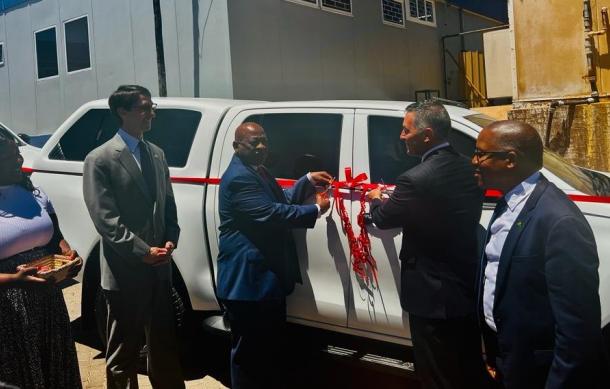
The US government has donated 16 vehicles to the Ministry of Health and Social Services (MoHSS) to enable clinical mentors in all 14 of the country's 14 regions to make regular visits to clinics in remote areas.
The mentorship programme was introduced in 2015 as part of the acceleration plan to reach HIV epidemic control by 2030.
The US government has been supporting Namibia in its fight against HIV and TB, and it has pledged to strengthen response measures further.
"This is a partnership, and it is a successful partnership. Each year, we go through a co-planning process with the government and other stakeholders to ensure that our investments meet the holistic needs of the country; while some of the funding is used to provide expert technical assistance to strengthen the quality of care, the funding is also used to provide practical assistance," says US Ambassador Randy Berry.
The Minister of Health and Social Services, Dr. Kalumbi Shanngula, says the ministry has, through the mentorship programme, decentralised its HIV service delivery from 38 percent to 98 percent at primary health care clinics.
"The mentorship vehicles are not only a mode of transportation but are vehicles symbolic of the connections we forge and the paths we traverse together. They represent the bridge between experience and aspirations, between knowledge and action. They are tangible reminders that mentorship is not confined to the boardroom or the conference room. It extends to every corner of the community to ensure that hard-to-reac areas receive the same quality of care and apply the same clinical management of HIV."
Dr. Shangula said the country has achieved the UN's triple 95-97-94 goals, in which mentors played a significant role.





